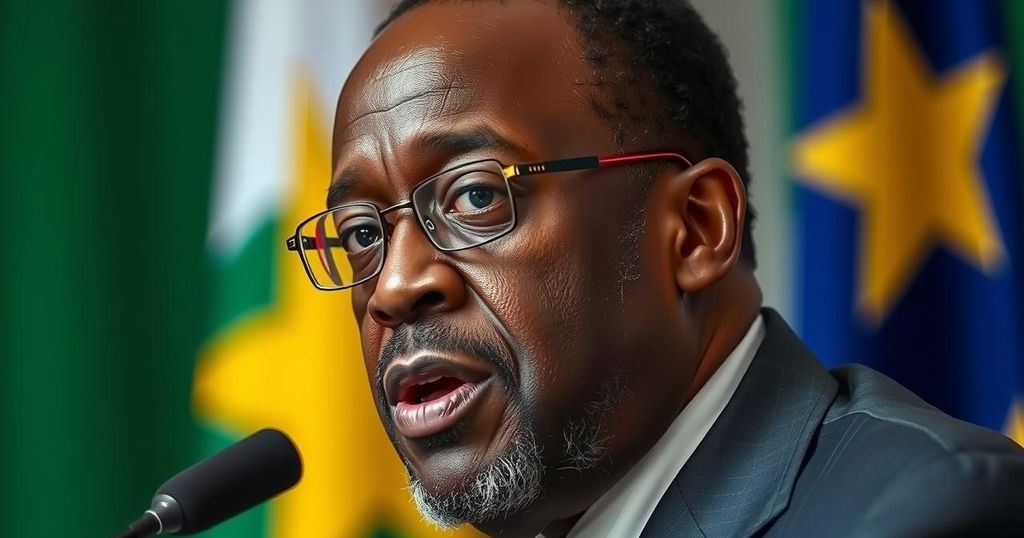Former President Joseph Kabila is spearheading efforts to mobilize the Congolese population against President Félix Tshisekedi’s proposal to revise the Constitution through a new commission. The FCC argues that such changes could threaten national peace and stability, invoking memories of Kabila’s previous failed attempts to alter the Constitution in 2015 due to significant opposition.
Joseph Kabila, the former President of the Democratic Republic of Congo (DRC), is actively seeking to rally support among the Congolese populace to thwart the current President, Félix Tshisekedi’s initiative to form a specialized commission aimed at revising the national Constitution. Kabila’s political party, the Common Front for the Congo (FCC), has issued a call for collective action to obstruct this constitutional reform, asserting that the populace must “rise up” to safeguard their rights, freedoms, and national sovereignty, as articulated in a recent FCC press release. In response to President Tshisekedi’s justification for the proposed revisions—where he emphasized that the 2006 Constitution was crafted by Congolese nationals and not imposed by foreign entities—Kabila and the FCC contest this assertion. They accuse the current administration of orchestrating a “political machination” intended to redirect public attention from persistent security challenges within the nation. The FCC contends that such constitutional changes would pose a significant threat to the peace, unity, and stability of the Democratic Republic of Congo. It is noteworthy that this is not the first attempt to amend the Constitution; Kabila himself previously sought constitutional modifications in 2015 during his tenure, yet was compelled to withdraw due to substantial opposition from religious groups, citizens, and rival political factions.
The situation regarding constitutional revision in the Democratic Republic of Congo is fraught with political tension. President Félix Tshisekedi has expressed intentions to reform the Constitution through a dedicated expert commission, which has provoked a strong reaction from former President Joseph Kabila and his political coalition, the FCC. The controversy stems not only from differing perspectives on the Constitution’s origins but also from deep-seated concerns regarding national stability and security. Kabila’s historical attempts to amend the Constitution and subsequent pressure from various societal groups play a significant role in shaping current public sentiment.
In summary, the political landscape in the Democratic Republic of Congo is witnessing a robust confrontation between former President Joseph Kabila and the current administration led by President Félix Tshisekedi. Kabila’s call for mobilization against the proposed constitutional revisions underscores the contentious nature of governance in the DRC, as concerns over national unity and security remain paramount. Both historical context and ongoing political dynamics will likely influence the future discourse surrounding constitutional changes.
Original Source: allafrica.com






